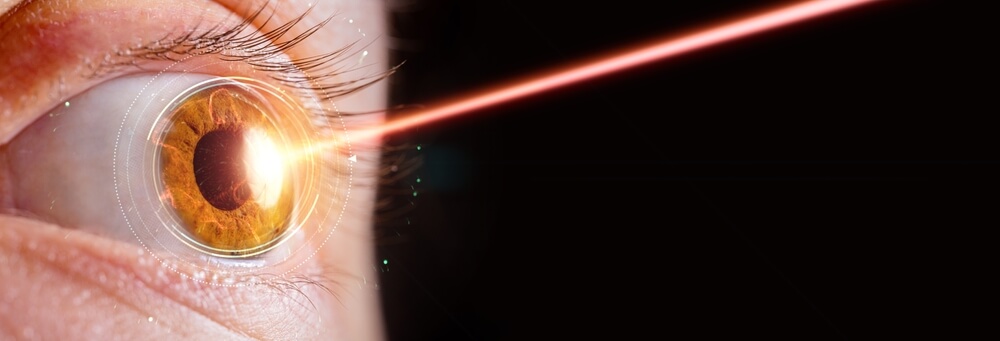
Laser eye surgery, commonly known as LASIK (Laser-Assisted In Situ Keratomileusis), has revolutionized the world of vision correction. It’s a procedure that has enabled millions of people to experience life without the constraints of eyeglasses or contact lenses. While LASIK offers incredible benefits, not everyone is an ideal candidate for this transformative procedure.
At Diamond Vision, our LASIK surgeons prioritize the safety and well-being of our patients above all else. In this comprehensive guide, we will explore the factors that may disqualify someone from LASIK, according to both the FDA’s guidelines and our extensive experience as a renowned vision correction center. Our goal is to provide you with the information you need to make an informed decision about your vision correction options.
Who Should Not Have Laser Eye Surgery
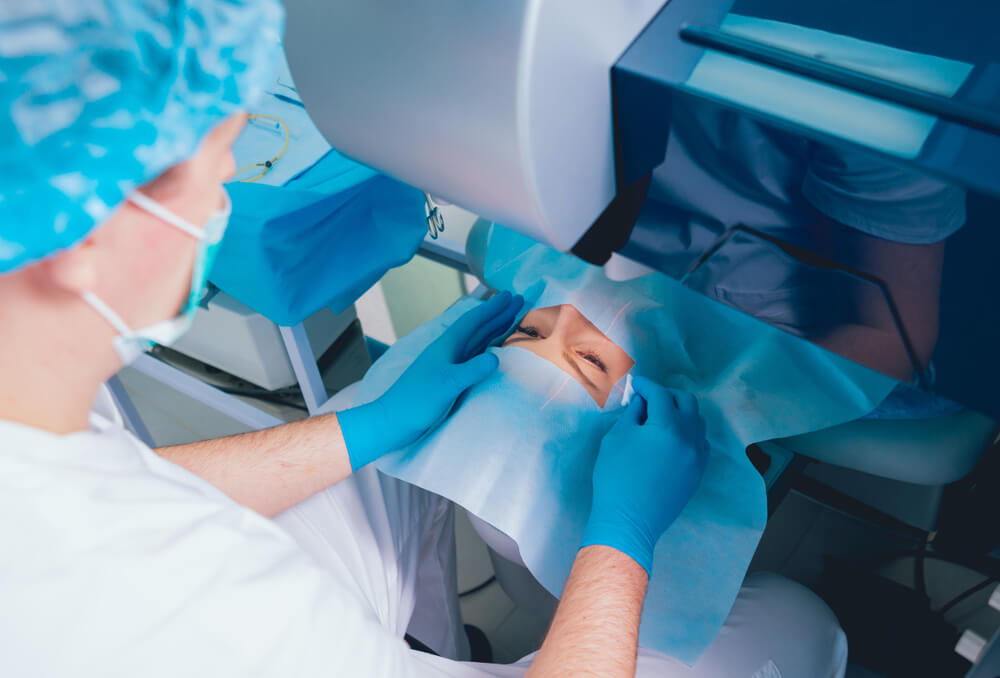
Poor Eye Health
One of the primary factors that may disqualify an individual from LASIK is poor eye health. While LASIK can address refractive errors, it’s not suitable for individuals with certain pre-existing eye conditions or symptoms. If you have been diagnosed with a bad case of dry eyes, LASIK may not be the right choice for you, or it may be necessary to incorporate therapies that rejuvenate your eyelid oil glands and ocular surface health prior to any LASIK surgery. Your refractive surgeon at Diamond Vision will tailor the best plan for you based on your individual needs. Some of the interventions your eye specialist may recommend include:
-Lipiflow
-flax seed eye pillow warm compress
-T-cell modulation therapy with Restasis, Cequa, or Xiidra
-preservative-free artificial tears
-Weibo tears
-intense pulse light therapy (IPL)
-Manual meibomian gland expression
-tyrvaya nasal spray for lacrimal gland stimulation
-eyelid hygiene with Optase or ocusoft lid scrubs
-blinking exercises
-medication modifications
-humidification of work and living environments
-eyelid anatomy considerations
These are just some of the therapeutic interventions that are utilized at Diamond Vision in order to mitigate dry eye signs and symptoms, and your refractive surgeon or eye care specialist will help determine the best interventions for you.
Allergies and Eye Rubbing
Patients who suffer from allergies or those who frequently hassle with eye rubbing should approach LASIK with caution. Consistent rubbing may lead to more complications following surgery, and certain allergy medications can contribute to dry eyes, which can affect the healing process post-LASIK.
Scarring and Eye Health
Individuals with a history of eye scarring from prior surgeries or injuries must be thoroughly evaluated to determine whether this scarring will impact the outcomes of LASIK. It is imperative that your surgeon examine your eyes to assess the potential impact of past scarring.
General Health and LASIK
General Health Considerations
General physical health is another vital aspect to consider when determining LASIK eligibility. Individuals with active connective tissue or autoimmune issues, like Sjögren’s syndrome or lupus, are typically not ideal candidates for laser vision correction. However, there are individual instances where such patients can enjoy successful refractive surgery outcomes if they are well managed on immunosuppressive therapy and compliant with pre and post-surgery ocular surface health recommendations.
Uncontrolled Glaucoma
Uncontrolled glaucoma or elevated eye pressure can increase the risk of vision loss. Patients with uncontrolled glaucoma are generally advised against LASIK as a result. If you have uncontrolled glaucoma, LASIK may not be the right choice for your vision correction needs. However, patients who have their glaucoma well controlled on either medicines, selective laser trabeculoplasty, or surgical interventions, and who are being followed for progression with a glaucoma specialist may be able to have Lasik performed safely and enjoy excellent outcomes without necessarily making their glaucoma worse.
Diabetes and LASIK
Uncontrolled diabetes can lead to changing prescriptions, which makes it challenging for doctors to accurately determine the surgical requirements. Additionally, diabetes affects the healing process, which is a critical aspect of the LASIK procedure. If your diabetes is not well controlled, LASIK may not be recommended. Generally, your LASIK surgeon will require that your HbA1C be below 8.0 in your most recent blood draw, which should be no more than 3 months old. When your HbA1C is under 8.0 and there are no signs of prior diabetic retinal or uveal complications such as neovascularization or diabetic macular edema, you can anticipate a fine outcome from your Lasik surgery.
Weakened Immunity
Patients with weak immunity from medicines or medical conditions like HIV/AIDS may be advised to refrain from LASIK, but that’s dependent on their specific health circumstances. Maintaining a strong immune system is crucial for a successful LASIK procedure and recovery.
Past Eye or Active Eye Inflammation or Infection
Medical issues such as uveitis, iritis, or keratitis, can be LASIK disqualifiers for individuals as well. This is because LASIK could worsen these conditions and potentially cause permanent damage to the eye or loss of vision. Recent eye infections or complications arising from prior infections, like a herpes eye infection within the past 12 months, can also increase the risk of corneal damage when undergoing LASIK. Due to the nature of LASIK, which will involve such processes such as corneal cutting and reshaping, individuals with these conditions need to be evaluated carefully to determine their eligibility for the procedure.
Vision Stability and LASIK
Stable Vision
Vision stability is a critical factor in LASIK candidacy. The FDA has set the age barrier for LASIK at 18 years old, as vision tends to stabilize after this age. Stable vision is defined as vision that remains unchanged for at least one year, including no alteration in the eyeglass prescription during this time. It’s common for patients’ eyes to stabilize during their twenties, making surgery before this age a subject of caution. If your vision has been unstable, LASIK may not be the best choice for you, but your refractive surgeon will be able to make a determination based on your individual diagnostics.
Thin Cornea
The thickness of the cornea is a significant factor in LASIK surgery. LASIK requires a cornea that’s thick enough to withstand reshaping without the risk of ectasia, which is abnormal corneal bulging, also causing impaired vision. The experts performing the laser vision correction must determine the thickness of the cornea to ensure it will “hold up” for the procedure. For those with thinner corneas, your laser eye surgeon may recommend PRK (photorefractive keratectomy) which allows more of your deeper corneal tissue to remain untouched. In addition, if you have a thin cornea, a test called an Ocular Response Analysis (ORA) may be ordered to gauge the strength of your cornea against a force of air, which provides an objective value that your LASIK surgeon can compare against a database of normal cornea subjects to help determine the long term success of your Lasik surgery.
Family History of Eye Conditions
Those who possess a familial lineage marked by eye conditions like keratoconus, pellucid marginal degeneration, or other disorders characterized by corneal thinning or protrusion are advised to exercise caution when considering LASIK. LASIK surgery may potentially expedite the progression of undiagnosed or incipient stages of these conditions, rendering it a less appropriate choice.
Pregnancy, Breastfeeding, and LASIK
Breastfeeding and pregnancy may lead to either permanent or temporary vision changes due to hormonal fluctuations and water retention. These changes can result in prescription alterations or dry eyes, all of which affect the eligibility for LASIK. Furthermore, medications used during LASIK can have adverse effects on an unborn fetus, making it necessary for pregnant women to wait until they’ve stopped breastfeeding to ensure safety.
Over-Dilation of The Pupils in The Dark
Those with severe nearsightedness (myopia) or enlarged pupils might face an elevated likelihood of encountering issues like glare and halos following their LASIK surgery. In cases of severe myopia, the procedure may also result in less precise corrections. In these cases, EVO ICL may be a better option as it can treat severe myopia at least 6 diopters beyond what Lasik surgery can safely treat.
Epithelial Basement Membrane Dystrophy (EBMD)
This condition is characterized by the surface cells of the cornea not adhering well together, leading to symptoms such as sharp eye pain, blurred vision, tearing, light sensitivity, and discomfort. LASIK may increase the risk of experiencing these symptoms for individuals with EBMD.
Prescription Medications
Patients taking prescription medications that can interfere with the healing process or overall eye health after surgery should exercise caution with LASIK. Some drugs, such as isotretinoin used for acne treatment, may cause dry eyes and abnormal wound healing. It’s crucial to inform your eye surgeon about all medications you’re taking to determine LASIK eligibility.
Active Participation in Contact Sports
People who actively participate in contact sports such as boxing or martial arts may not be the ideal candidates for LASIK. These sports carry a higher risk of sustaining eye and face injuries. In the case of LASIK, if the corneal flap dislocates or is lost due to a traumatic impact, it can result in vision damage even years after surgery. For individuals engaged in such activities, alternatives like PRK or all-laser Lasik (Intralase) are often more appropriate than traditional blade LASIK.
Professional and Career Requirements
Certain professions, including law enforcement or military roles, demand excellent vision. In some cases, especially with larger treatments, LASIK may diminish night vision during low-contrast conditions, affecting individuals in occupations requiring precise vision, particularly during adverse weather conditions. Customizing your LASIK treatment to reduce higher-order aberrations which might otherwise increase glare symptoms at night, is an important LASIK upgrade to consider if your job requires excellent night vision. If you’re in a profession with such requirements, it is advisable to consult with your employer as well as your refractive surgeon to determine their stance regarding LASIK versus other options.
In addition, certain military positions will require a waiver for you to be able to remain in that capacity once you’ve had refractive surgery. These can typically be obtained with the assistance of your base medical group and your eye surgeon’s practice, once your vision has been documented to be within acceptable parameters.
Determining Your Eligibility/Costs
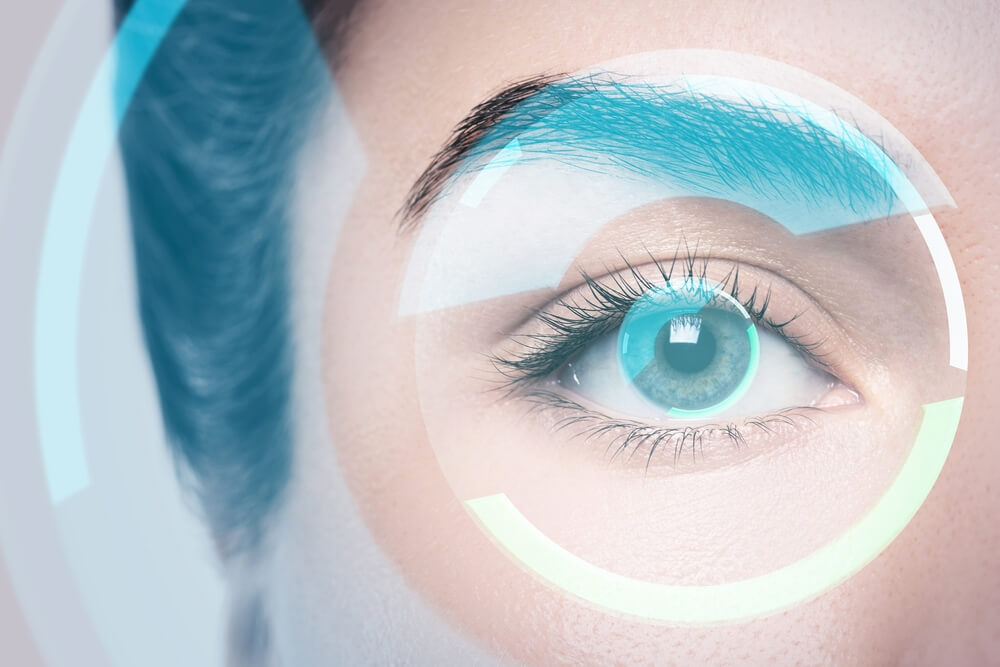
For some individuals, the cost of LASIK may be a deciding factor in their eligibility. LASIK is considered an elective procedure and is often not covered by standard medical insurance.
According to expert sources, the cost of LASIK typically ranges from $1650 to $3,000 per eye. The price can vary based on several factors, such as the extent of vision correction required, the surgeon’s experience, the technology employed, and the aftercare services provided.
As the popularity of LASIK has increased, many insurance companies now offer supplemental vision insurance coverage. Numerous supplemental plans provide specific discounts for LASIK surgery. If cost is a concern, you may want to explore supplemental insurance options.
Keep in mind, Flex spending accounts (FSA) and Health Savings accounts (HSA) are both employee benefits from your employer to which you can contribute tax-free dollars, and both HSA and FSA plans allow you to use that money toward your LASIK and laser vision correction surgery. This is a great way to reduce the overall cost of your LASIK procedure.
Keep in mind, however, that if your employer provides a Flex account, the money you contribute during that calendar year does not roll over like a HSA account does. So if you have an FSA account, you need to “use it or lose it” before the end of the year, and LASIK may be a great use of those leftover FLEX dollars.
Finishing Thoughts
In conclusion, LASIK surgery offers significant benefits, but it’s essential to recognize that it may not be suitable for everyone. Factors such as eye and general health, past eye conditions, medications, lifestyle choices, and career requirements may significantly influence LASIK eligibility. Patients are encouraged to consult with their ophthalmologists to assess their individual suitability for LASIK. Our specialists at Diamond Vision will conduct a thorough evaluation to ensure that LASIK is a safe and appropriate choice for your vision correction needs.
So, if you are looking for LASIK eye surgery in New York or if you have questions about your eligibility, please don’t hesitate to reach out to us at Diamond Vision. We are here to provide guidance and address any concerns you may have. LASIK has been a life-changing procedure for many, and our team is dedicated to helping you achieve the best possible outcome for your vision.
Contact Us
If you have more questions about LASIK procedures, get in touch with us.
Related Blogs
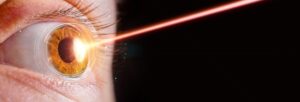
Who Should Not Have Laser Eye Surgery
Laser eye surgery, commonly known as LASIK (Laser-Assisted In Situ Keratomileusis), has revolutionized the world of vision correction. It’s a procedure that has enabled millions
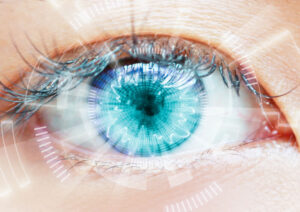
LASIK eye surgery: What is LASIK and how does it work?
What Is LASIK? Experts categorize LASIK as a refractive eye surgery in which lasers are used to correct vision problems. LASIK corrects several refractive errors,
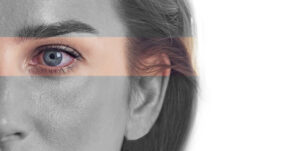
Everything You Need To Know About The Lipiflow Treatment
LipiFlow is often referred to as a ground-breaking technology that is able to treat dry eye issues caused by meibomian gland dysfunction, or MGD. Experts
